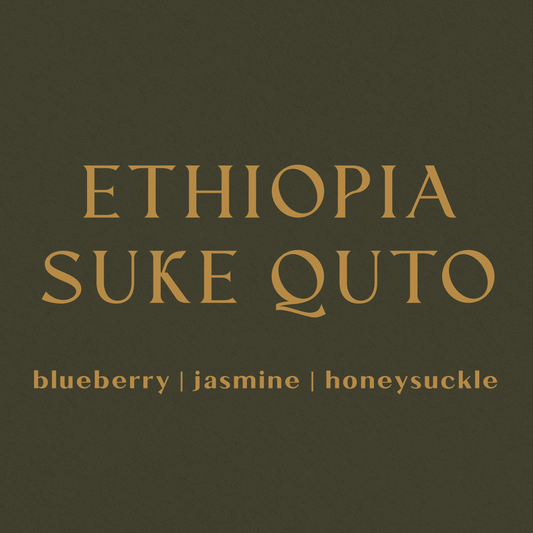
Tesfaye Bekele
Tesfaye Bekele & Suke Quto: Forest-Led Coffee Innovation in Guji
Tesfaye Bekele, born into a coffee-growing family in Guji’s Shakisso woreda, initially pursued a career in forestry and environmental protection within the Ethiopian government. From 1997 to 1999, he led efforts to revitalize 5,000 acres of burned forest land, transitioning agricultural focus from monocrops back to sustainable forestry. Witnessing farmers converting burnt land into maize and teff production—leading to soil erosion—Bekele envisioned coffee as a regenerative, forest-compatible crop that could restore both ecology and community livelihoods.
In 2000, Bekele established the Suke Quto farm and nursery, planting both indigenous trees and coffee seedlings to demonstrate coffee’s regenerative benefits. When local farmers doubted the long-term payoffs, Bekele became the first to wait the four‑to‑five years necessary for coffee maturation, ultimately inspiring others to follow.
Farm & Community Integration
Today, Suke Quto spans 221 ha of agroforestry, blending Kurume and Welicho landrace varieties under native forest canopy. Bekele supports 171–287 outgrowers, who deliver cherries to his on-site washing and drying facilities.
The washing station employs an Agared depulper, with 35–48 hour fermentation, followed by slow drying on raised beds (9–15 days). Wastewater is responsibly managed via lagoon systems. Bekele’s approach emphasizes circular soil management—mulching coffee pulp and pruning residue for soil health—supported by a nursery that ensures regenerative planting cycles .
Quality, Exports & Market Positioning
Suke Quto was among the first Guji producers to receive global attention. Brands such as Stumptown, Trabocca, Swiss Water, Partners Coffee, and Frothy Monkey source and feature its washed, natural, and honey-processed lots. Cup profiles range from floral—jasmine, peach, lemon, chamomile—to fruit-forward notes like wild cherry, concord grape, and plum .
Bekele's enduring partnership with Trabocca began in 2009 and has evolved to include quality incentives, logistical support, and traceability via blockchain technology. Stumptown has sourced his organic lots since 2010, contributing to educational infrastructure in Kumure through school construction.
Legacy and Vision
Tesfaye Bekele is widely credited as a pioneer in Guji’s specialty coffee movement, placing it on the global map through his commitment to forest-based coffee, community uplift, and quality excellence. He views coffee primarily as a conservation tool, not merely a commodity—an ethos that prompted him to resign from government work and dedicate himself entirely to Suke Quto.
Under Bekele’s leadership, coffee has become the cornerstone of a broader vision: regenerating damaged landscapes, maintaining agro-forest biodiversity, and ensuring sustainable livelihoods for local communities.
Key Highlights
Origins: Transitioned from forestry to farming post wildfires; founded Suke Quto in 2000
Scale: 221 hectare estate, 171–287 cooperating smallholders
Varietals: Kurume & Welicho landraces at 1,800–2,200 masl
Processing: Washed, Natural, and Honey; Agared depulper; 35–48 hr fermentation; raised-bed drying
Certifications: Organic & Rainforest Alliance, with sustainable soil and water management
Market Presence: Partnered with Trabocca, Stumptown, Swiss Water & others; noted for floral and fruit cup profiles
Social Impact: Investment in seedlings, farmer inspiration, and school infrastructure
Coffees by Tesfaye Bekele
-
 Sold out
Sold outEthiopia Suke Quto
Regular price From $20.00 USDRegular priceUnit price / per

